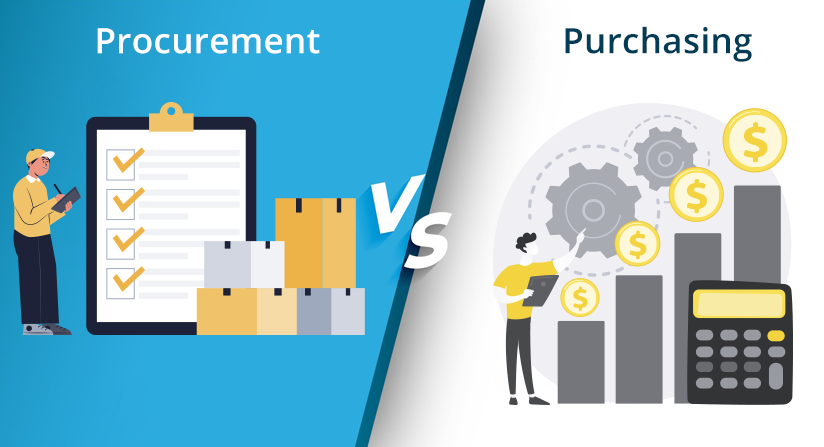In an era where environmental concerns are taking center stage, sustainability has emerged as a critical driver of success for manufacturers, big and small. Governments, consumers, and stakeholders increasingly prioritize sustainable practices, urging manufacturers to reevaluate their operations.
While large corporations have been at the forefront of manufacturing sustainability trends, in 2024, more small and mid-sized manufacturers are expected to incorporate green initiatives, recognizing that sustainability is essential for their bottom line. Embracing manufacturing sustainability is becoming a strategic necessity, and in this blog, we’ll explore the key reasons why.

1. Gain Additional Customers
In 2024, many consumers and businesses will make purchasing decisions based on a company’s commitment to sustainability. A study by Nielsen found that 66% of consumers are willing to pay more for sustainable products. Smaller manufacturers can tap into this expanding market by adopting sustainable practices, attracting eco-conscious customers, and gaining a competitive edge.

Manufacturers can showcase their commitment to manufacturing sustainability by tracking and reporting environmental metrics, such as reduced carbon emissions, efficient resource utilization, and eco-friendly materials usage. This data transparency appeals to potential customers and can be a compelling selling point.
2. Reduce Waste
Manufacturers can take several proactive steps to reduce waste and promote greater sustainable manufacturing in their operations. First and foremost, they can implement lean manufacturing principles that focus on minimizing waste at every production stage. This involves optimizing processes to reduce overproduction, wait times, unnecessary transportation, and excess inventory, which not only conserves resources but also saves money. Additionally, manufacturers can design products with a longer lifespan and easier recyclability, reducing the need for constant replacements and minimizing the amount of waste generated. Using eco-friendly materials and efficient production techniques can also contribute to waste reduction and sustainability in manufacturing. Waste prevention is a business strategy from which any company can benefit, regardless of size or type. In addition to cost savings, it can help you improve worker safety, reduce liability, and enhance your image in the community. Furthermore, if the waste you are eliminating or reducing is regulated under state or federal law – and your reductions are significant enough – you might be able to avoid costly permits and government approvals.
Another crucial aspect of waste reduction is effective waste management and recycling programs. Manufacturers can set up systems to efficiently sort, recycle, and repurpose materials, reducing the amount of waste that ends up in landfills. Collaborating with suppliers and customers to create a closed-loop supply chain can further promote sustainability by facilitating the recovery and reuse of materials. Manufacturers can also invest in energy-efficient technologies and renewable energy sources to reduce energy consumption and associated waste. Overall, a comprehensive approach to waste reduction not only benefits the environment but also enhances a manufacturer’s reputation, saves costs, and aligns with the growing demand for sustainable products and practices in the market.
3. Lower Energy Costs
Manufacturers can reap numerous advantages by reducing their energy costs to enhance sustainability. First and foremost, a more energy-efficient operation translates to substantial cost savings. By implementing energy-saving measures, such as upgrading equipment, optimizing processes, and adopting renewable energy sources, manufacturers can lower their utility bills significantly. Many governments and regulatory bodies offer incentives and subsidies to encourage sustainable practices, such as tax credits and grants. These cost reductions can directly enhance a company’s bottom line, allowing it to invest in other critical business areas, such as research and development, expansion, or employee development.
4. Increase Efficiency
Increasing efficiencies in manufacturing processes is essential for manufacturers looking to enhance sustainability. By optimizing production methods, manufacturers can reduce energy consumption, waste generation, and resource usage. This results in lower operational costs and a decreased carbon footprint. Improved efficiency can also lead to the development of more environmentally friendly products and materials, such as using recycled materials or innovative technologies. Streamlined logistics and supply chain management can minimize transportation-related emissions. Efficiency gains often go hand in hand with reduced downtime, extended equipment lifespan, and improved employee satisfaction.
5. Enhance Employee Satisfaction
When a company prioritizes sustainability practices, such as reducing waste, conserving resources, and minimizing its environmental footprint, it fosters a more positive work environment. Sustainable initiatives often promote a sense of purpose among employees, contributing to something greater than profit margins. Moreover, sustainable companies tend to be more transparent, ethical, and socially responsible, which aligns with the values of a modern workforce. This alignment of values and purpose creates a sense of pride, engagement, and fulfillment among employees, ultimately driving higher job satisfaction, retention, and productivity.
Final Thoughts
Small to medium-sized manufacturers are the backbone of the global economy. In the United States alone, they make up 98.5% of all manufacturing firms and employ over 47% of the manufacturing workforce. Given their sheer number and collective impact, these manufacturers can play a pivotal role in shaping a more sustainable future.
Sustainability is becoming essential for smaller manufacturers to help them increase their competitive advantage and satisfy customers, stakeholders, and employees. By aligning with green initiatives, smaller manufacturers can secure their place in an environmentally conscious future while also enjoying the benefits of cost savings and market growth.
Follow Us









